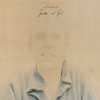 Hans-Joachim Roedelius' stature in German experimental music is well documented in his work with Cluster, Harmonia and Brian Eno. Yet Roedelius' solo output often drifts sadly under the radar. Here Roedelius' 1979 solo effort, his second, is reissued so that once again his distinctive musical style can be seen unblemished by a surrounding group. With this freedom, Roedelius used his simple compositional approach to achieve one of his most whimsical and curious statements.
Hans-Joachim Roedelius' stature in German experimental music is well documented in his work with Cluster, Harmonia and Brian Eno. Yet Roedelius' solo output often drifts sadly under the radar. Here Roedelius' 1979 solo effort, his second, is reissued so that once again his distinctive musical style can be seen unblemished by a surrounding group. With this freedom, Roedelius used his simple compositional approach to achieve one of his most whimsical and curious statements.
Perhaps most surprising about the work is its predilection for distinctly classicist motifs and styles. Despite their unusual instrumentation (often combining rich grand piano chords with synthesized melodies atop), most of these works feel like small classical samplings from a bygone era. The synthesized horn lines of the opening "Fou Fou," the gently descending melody of "Toujours," each work gracefully skims along with an almost Kurt Weillian sense of a line, only as filtered by the simplicity and cultivated aesthetic of Erik Satie.
Of course any nostalgic feeling achieved by the album is an eccentric distortion of the classical fare that it conjures. Yet this is a testament to the artist's talent as a composer and arranger, and works such as the waltzing "Rue Fortune" don't so much rehash the past and resituate it. There is a nearly circus-like dementia to the piece as a four-chord rhythm is repeated above increasingly swirling background synthesizers. The effect is subtly disorienting, never taking over the work so much is deepening its potency.
The same could be said of "Cafe Central," whose synth lines loop atop one another below a synthesizer melodic line and pulse. Given the general lack of rhythm machines or sequencers here, Roedelius makes the most of what he has, always carefully choosing each sound and effect and never getting too overindulgent with them. This gives "Cafe Central" a highly Eno feel, and could easily fit in as one of the beautifully soft-spoken miniatures within Another Green World.
Over and over again what displays itself most clearly here is Roedelius' ability to take a small melody or idea and expand upon it until it becomes a work in itself. This doesn't mean layering endlessly however; sometimes, as on "Le Jardin," all he needs is a melody, a buzz, a synth line and some birdcalls to create an evocative piece whose reach is refreshingly short. Each melody here speaks for itself and each work is as playful as the next, as exhibited by the Kraftwerk circa Autobahn momentum of "Etoiles," with its lilting synthesizer rhythms, cooing female vocal and drifting cello line. It is a cohesive whole far that achieves a whole far greater than its cutesy melodic fragments may imply.
Included in the reissue are six bonus cuts, three of which are remixes and three newer tracks. The remixes are different enough from the originals to keep them interesting, and the new tracks fit snuggly in, rounding out an already impressive and understated work. While so many of these kinds of albums have come to sound dated, Roedelius' clean and crisp sound retains the freshness of his material, even as electronic music moves ever further from the approaches and sounds he most adheres to.
samples:
Read More

